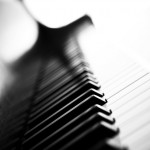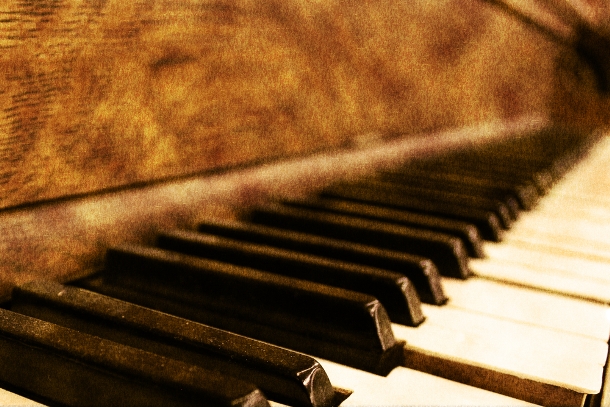 For some strange reason (connected to reworking their podcast delivery system, I think), the folks at NPR Control sent me a sort-of-random podcast this week. From something they did back in 2011. Something from the folks at Morning Edition called “Musical Innovation: A Grander Grand Piano.”
For some strange reason (connected to reworking their podcast delivery system, I think), the folks at NPR Control sent me a sort-of-random podcast this week. From something they did back in 2011. Something from the folks at Morning Edition called “Musical Innovation: A Grander Grand Piano.”
Best mistake ever.
Most pianos have 88 keys. And most great piano music comes from the middle of the keyboard — only rarely do the player’s fingers venture onto the tinkly keys at the top of the keyboard, or the booming bass notes at the bottom. But a craftsman in Newcastle, New South Wales, Australia, thinks the instrument has room to grow; and he wants to nudge the piano out of complacent middle age. He has designed a grand with an unprecedented 102 keys.
The Stuart and Sons grand piano has 14 more keys than most, which means its lowest and highest notes live very much on the edge. Its designer, Wayne Stuart, says a few other grands can play as low as this 102-key model, but none can play as high.
“I’d hate to go back to the 88-key piano,” he says. “I couldn’t stand it. It’s too limited.”
The story’s pretty cool, though I have to admit that the sounds produced by the new keys on the edges are a bit too strained/distorted for me to care about the project overall. I just can’t hear much of a difference once things get that sonically disparate.
But here’s what I really liked.
The Stuart grand can’t compete with a giant like Steinway; only about 40 of the grands have been sold worldwide. But Lancaster says the Stuart raises an important question: When do we stop innovating?
“The idea 150 years ago was that each piano should be a masterpiece in its own right, and should not necessarily resemble the piano that was made before it,” Lancaster says. “That’s all changed, of course. So I’m all for innovation in the modern piano. To me, the piano is a pinnacle of human achievement. So it seems right and proper that it should continue to develop.”
I’m not sure “innovating” is the word to use there. Or at least I’m not sure it’s the word that attracted me to the quote. Because what I really love is the idea that every piano is (or should be) it’s own work of art; its own masterpiece. Piano makers — or the makers of any musical instrument, really — who have developed an “assembly line” mentality make me sad. Sure, it might be a more financially viable (or economically advantageous) approach. But it’s less creative; less artful; less beautiful.
It’s less human.












